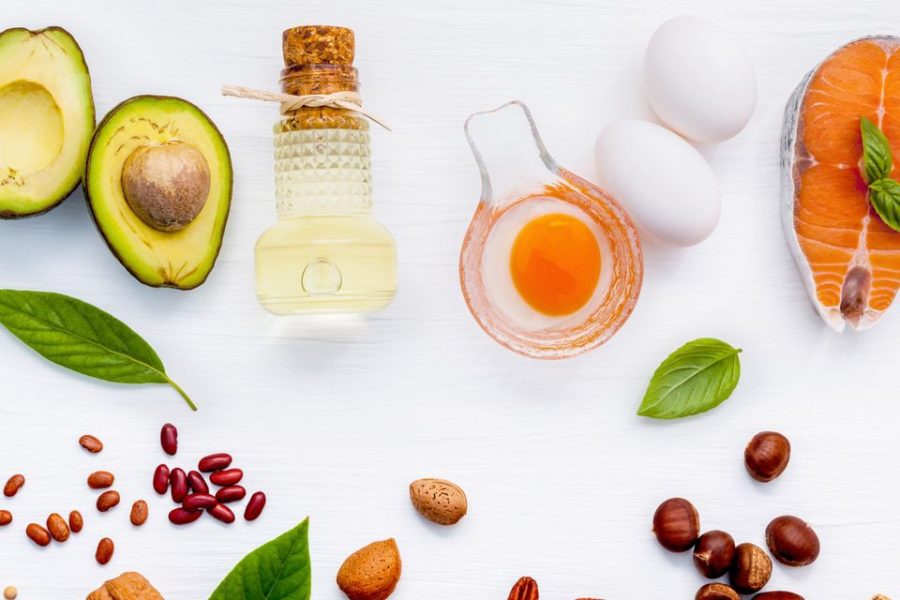How food impacts your mood
Studies show that, almost everything you eat either improves or harms your mood. It can affect not only your cognitive function but also your susceptibility to depression and anxiety, brain fog, fatigue, and other mental health issues! As someone with anxiety, I notice firsthand when my diet is supporting my mental health or damaging it. When I consume real, whole foods I tend to be happier and more energetic than when I’m consuming processed foods or tons of sugar. This is because sugar and processed foods cause inflammation throughout the body and brain. The good news is that the opposite is also true – you can eat foods that improve your mood and mental wellbeing! Eating to support a healthy brain and mood means eating a diet that lowers inflammation in the body – here’s some tips on how to do that!

Increase Healthy Fats
- Your brain is made up of about 60% fat. Which means that the types of fat you eat are extremely influential on cognitive function. Focus on omega-3 fats such as:Walnuts, chia seeds, wild caught salmon, sardines, anchovies, mackerel, flaxseeds, and pasture raised eggs. Your body needs omega-6 fats as well but in moderation. In excess omega-6 fats lead to inflammation and poor cognitive function. Avoid: Canola oil Corn oil Soybean oil Peanut oil
Reduce Packaged & Processed Foods
- Packaged foods are loaded with ingredients that wreak havoc on our bodies and brain. Other than omega-6 fats and seed oils these foods tend to be filled with added sugar, refined flours, and industrial food dyes – all of which drive up inflammation, negatively impact blood sugar, and sabotage both our physical and mental health.
Support Your MicroBiome
- Our gut is known as our second brain because there is a strong line of communication between our gut and our brain. One of the best ways you can support your brain is by supporting your microbiome. Studies show that increasing the amount of good microbes in your gut improves the regulation of your immune system, helping to keep inflammation low, and making neurotransmitters easier for the brain to respond to quickly, positively impacting your mood. Start incorporating fermented foods rich in probiotics (probiotics = good bacteria) as well as fiber-rich prebiotic foods. This will feed the good gut bacteria and help to keep your microbiome balanced.
Eat More Plants
- Plants should be the base of our diet. And while all veggies are important in a balanced diet, green vegetables specifically contain concentrated amounts of important antioxidants, vitamins, and minerals, as well as gut-friendly fiber that can have a positive influence on our mental wellbeing. In recent research, higher intake of green vegetables has been associated with lower risk of cognitive impairment , depression, and mood disorders.
Prioritize complex carbs
- Complex carbs from whole foods (like sweet potatoes, sprouted oats, beans and quinoa) can actually increase the availability of serotonin in your brain! These foods are also packed with fiber that supports a healthy gut (and as we saw above, a healthy gut is key for mood).
Don’t forget about micronutrients
- Micronutrients are just as important as the macronutrients in our bodies. By eating a diet that filled with real, whole foods you are guaranteeing that your body is receiving that vitamins & minerals that it needs. These nutrient rich foods will support mental well-being and reduce nutritional deficiencies. Some nutrients that impact mood are magnesium, omega 3 fatty acids, folate, iron, vitamin C, vitamin B complex, etc)
I hope these tips are helpful and you’re able to implement them and start fueling your brain health!